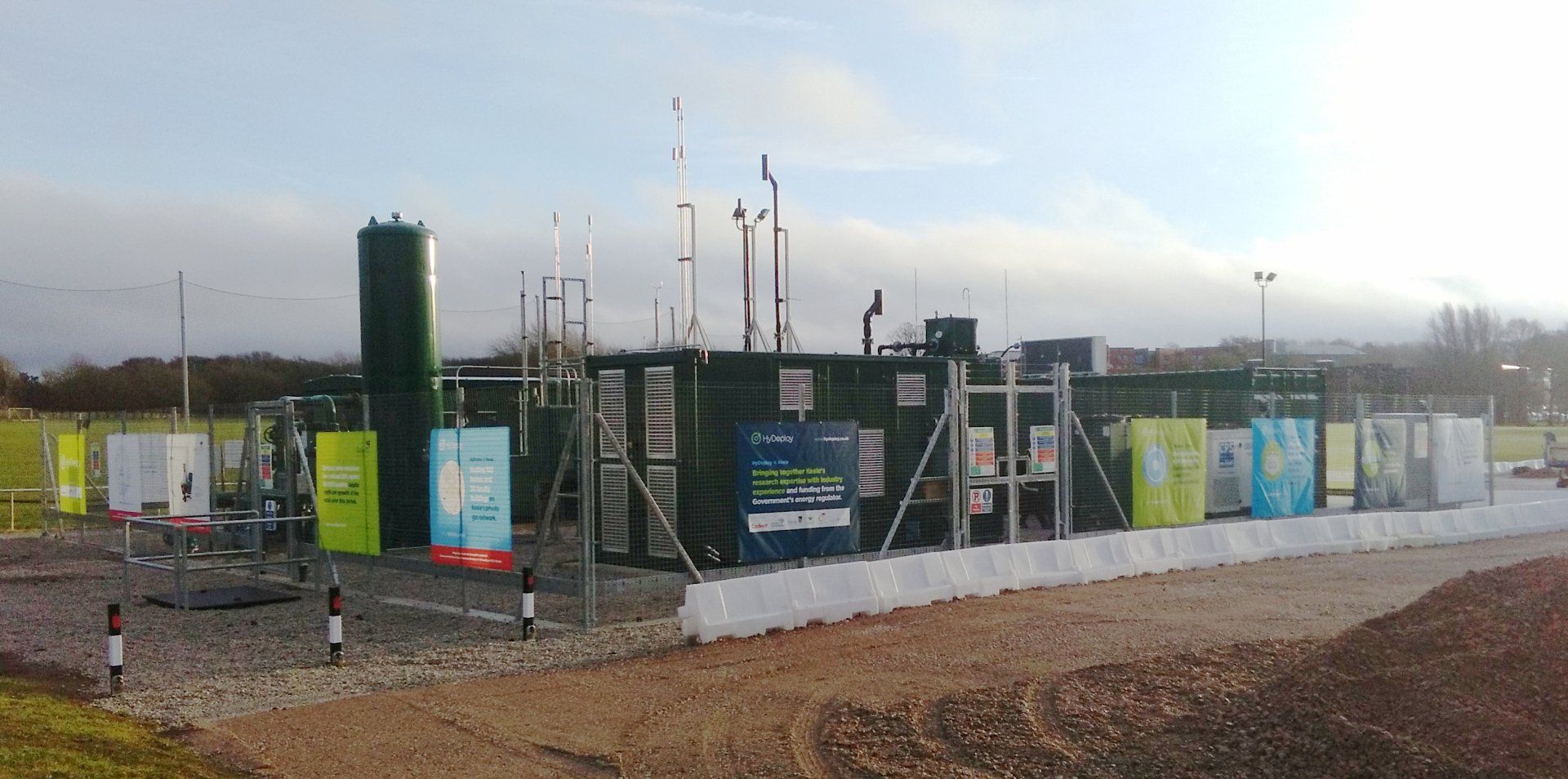Hydrogen
-
Hydrogen Specific Considerations
Hydrogen has been in use in the UK for many decades, but tended to be used close to where it is produced. Distribution and use beyond such facilities was unusual, but is now seen as an integral part of the national drive to Net Zero by 2050.
This drive to increase the use of hydrogen across industry is now driving the regulatory environment which is changing rapidly. This lack of familiarity with using hydrogen outside of these limited facilities also leads to nervousness amongst potential users and a fear that hydrogen is a highly risky fuel.
Otto Simon is experienced in the design and engineering of hydrogen facilities and has gained practical knowledge of the safety requirements to ensure safe use of hydrogen fuel. We have expertise in process safety regulations such as DSEAR and PED, engineering procedures such as HAZOP, and have successfully applied these methods to hydrogen projects.
Engineering challenges associated with hydrogen are primarily driven by its small molecular size. It is the smallest element and therefore has a high propensity to leak. If it does leak and accumulate, hydrogen is very likely to ignite or explode. The explosive range of hydrogen is greater than natural gas and the required ignition energy smaller; however, by applying sound engineering practises it can be handled safely.
-
Successful Hydrogen Trialling
Otto Simon can assist our clients with the following key considerations for a successful hydrogen fuel demonstration plant:
Trial Aims
- Demonstrate the use of hydrogen fuel without affecting the product quality or impacting plant operations.
- Identify what equipment / assets can be used with hydrogen fuel (particularly important with older equipment).
- Identify the required modifications to equipment and site infrastructure.
- Provide confidence to invest in the longer-term transition to hydrogen.
- Ensuring the site still meets NOx emission levels and has required planning permission etc.
Trial Location and Definition
- Identifying representative operational equipment to use in the trial without disrupting plant operations.
- Defining trial length, parameters, and success measurements with the client.
- Evaluating hydrogen supply options (Road trailer: MCPs, generation-site; production on site).
- Assessing and mitigating site layout constraints: hydrogen infrastructure, tie-ins, and hydrogen tanker access logistics; safety considerations (i.e. hazardous area); neighbours.
Safety Case
- Hazard Studies (including HAZOP).
- LOPA.
- Dispersion and consequence modelling.
- DSEAR/ATEX, traffic movements, proximity to other existing site facilities.
- Design & build process is very similar to that for a permanent facility.
-
Hydrogen Regulatory Compliance
OSL works to ensure hydrogen projects comply with the regulatory guidelines, some of which are described below:
COMAH Regulations
- Upper Tier COMAH - Stored Hydrogen Mass in Excess of 50Tonnes
- Lower Tier COMAH - Stored Hydrogen Mass in Excess of 5Tonnes
- Planning (Hazardous Substances) Regulations 2015 - Stored Hydrogen Mass in Excess of 2Tonnes
PSSR (Pressure) Regulations
- PSSR - Hydrogen pressure >0.5barg
- IGEM/H/1 Guidance - Hydrogen pressure <25mbarg
Liquid Hydrogen
- Determine Safety Distances Using EIGA 75/07
- Bulk Hydrogen Storage (e.g. Tube Trailers)
- Yes - Determine Safety Distances Using CP33/EIGA 15/06
- No - Determine Safety Distances Using CP4
Hydrogen Refuelling Installation
- Calculate Hazardous Area Using IGEM/SR/25 Hydrogen Supplement
- Vent Design Guidance EIGA 211_17
-
HyDeploy Project
Fact SheetHydrogen blending trial, Keele University
